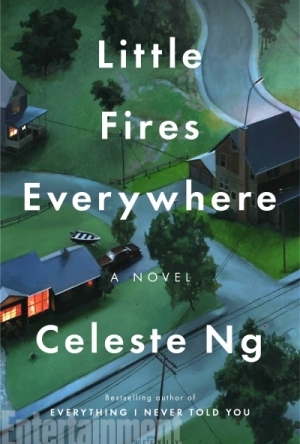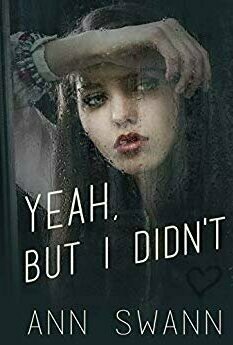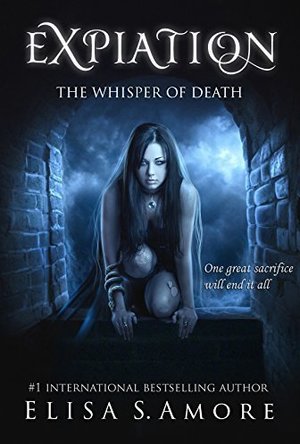
My Days X - Period & Ovulation ™ (Pro)
Lifestyle and Health & Fitness
App
This is the AD-FREE Version from the popular Application "My Days - Period & Ovulation". --------...

Thai Massage Master Class
Health & Fitness and Education
App
Take a Master Class in the art of Thai Massage Techniques with this collection of 234 tutorial video...

Sweat: Kayla Itsines Fitness
Health & Fitness and Lifestyle
App
Sweat with the Kayla Itsines BBG Program and join the world’s biggest female fitness community and...

MyFLO Period Tracker by FLO Living LLC
Health & Fitness and Lifestyle
App
MyFLO is the first-ever period tracker and fertility app that tells you what to do to be...

AppTools 100 in 1
Finance and Utilities
App
BEST deal ever! ONE HUNDRED top QUALITY tools for a very low price! **** For a limited time ****...
Amanda (96 KP) rated Little Fires Everywhere in Books
Mar 21, 2019
Obviously, I'm writing a review on it, so of course, I DID NOT put it on my DNF list. It took quite a few chapters (roughly five I think) to really get into the story and by then, I was completely hooked.
There are several stories going on.
The Richardsons rent out a house to a single mother, Mia Warren with her daughter Pearl. The Richardsons are friends with another family who are in the process of adopting a Chinese-American baby, but the process is paused when the mother comes forward wanting her daughter back. The husband, Mr. Richardson, is a lawyer representing the family who want to keep the baby and Mrs. Richardson basically tries to do some investigating of her own, including finding out things about her tenants past and what she has done to cause this drama for her best friends.
The theme of it all centers around a baby. Not just one baby, but that's the whole premise of the story.
One family wants to adopt the Chinese baby they renamed Mirabelle (I'm sorry, but I really don't like that name, or the reason WHY they changed it) and then the mother coming forward wanting her baby back. Now, the mother left her baby at a fire house cause she was not the right state to take care of her. If someone hadn't tipped her off as to where her baby was, then maybe this whole thing could have been avoided.
I struggled with not yelling at when the woman says the family is stealing her baby. No, they are not. They adopted her when she was left at a fire house. That is a thing that women in her state CAN do. If they cannot afford resources available (cost wise) they can leave their baby with a hospital or a fire house no questions asked. That also means that you give up parental rights. Granted, there should be some sort of grace period, but you cannot say this family stole your baby, because they didn't!
One teenager in the story finds out she's pregnant from her boyfriend and I just cannot fathom her snobby naivete attitude. She swoons over Mirabelle because she's so cute. I'll give you that, babies are cute. But then she starts to fantasize that her and her also teenage boyfriend could work it out and their parents would take care of the baby while at college. Yeah, okay! Reality does hit her hard though, but I won't say how, but it does and I almost feel bad for her, but not quite.
Then there's someone who agreed to be a surrogate and winds up stealing the baby before it was born. Now, technically, that woman did steal a baby. Granted, it's biologically yours, but she agreed, verbally and legally, to be this couple's surrogate. I'm not entirely sure I could do it, cause I really don't want to go through the whole pregnancy, but I can't speak for other women who go into the surrogacy and then start to regret it later. I don't know.
I'm now just babbling. Despite the slow beginning, I can definitely see why this book had as much hype as it did when it was published. It really gets you thinking about different perspectives of motherhood, biological or not. The story is told as if someone was indeed telling a story to a group of people. Almost like when someone is narrating a play and you're watching it as it unfolds before your eyes.
I do look forward to seeing about Celeste Ng's previous novels. This story may be sensitive to some people who have gone through any of these scenarios because I think some things that happen later, could very well get emotional. The story is great, but also keep that in mind if you are at all familiar with these kinds of stories.
Heather Cranmer (2721 KP) rated Rancher to the Rescue in Books
Jun 7, 2018
Romances aren't usually my thing, but I like to get out of my comfort zone every now and again. I'm really glad I did though because Rancher to the Rescue by Jennifer Faye was such a sweet read.
Okay, I won't reiterate what the blurb says because it describes what the book is about perfectly (which is a rarity amongst books these days). Just now that with this book, what you see is what you get.
The title describes this book perfectly. It's about a rancher (Cash) saving a celebrity (Meghan). I couldn't think of a better title, so I think Ms. Faye did an excellent job coming up with the title Rancher to the Rescue.
The cover is alright. I've seen worse covers, but I've seen better ones as well. Personally, I would've liked to see more of a ranch scene behind the couple on the cover of the book especially since this takes place at a ranch.
The world building is fantastic. In fact, I don't think I can fault it. Every situation was explained excellently which left me with no questions whatsoever. Even when Meghan is running out on her wedding, I though the author did an excellent job of explaining how she avoided the paparazzi.
The pacing is a bit hit and miss throughout the book. Sometimes, I would devour whole chapters just to be bored with the next. This could just be a personal thing though since I'm not used to reading romance books, but to me, in some parts, it was just too slow. But don't let that put you off reading this book.
As with most romance stories, the plot is predictable, but I found it to be well written and very sweet. The plot questions were if Meghan and Cash escape the ever watchful eye of the paparazzi, would Cash ever get over his past, and would Cash still want Meghan even though she was pregnant with another man's baby. All those questions do get answered by the way.
I thought the characters were written fabulously. I found Meghan to be vulnerable at times, but she was such a brave girl with everything that was going on. I loved her maternal instinct when it came to her pregnancy as well as how she was very wary to trust after what Harold did to her. I loved Cash as well. I liked how at first, he didn't want to get involved with Meghan due to his past history. I enjoyed watching him open up to Meghan, and eventually, what lengths he went to in order to protect Meghan. My favorite character though was Cash's grandmother. I don't know how to describe her other then to say that she was very grandmotherly! I loved how sweet she was to Meghan and how she'd always volunteer Cash to do things (this had me chuckling). She wanted everyone to be happy. I just wish she didn't have to leave about a quarter through the story because I was really enjoying reading about her.
The dialogue never came across as forced. Yes, in some parts the pacing was slow, but this wasn't due to the dialogue. I enjoyed the dialogue the most whenever Cash's grandmother was around. She was just so sweet!!! One thing that did annoy me was the fact that over and over again, the book kept mentioning how Meghan wasn't a skinny woman. Yes, I got the point that she wasn't skinny the first few times I read it. However, it just seems to be pointed out a lot.
Overall, Rancher to the Rescue is a short and sweet story that would be excellent to read during the summer, on vacation or just any time really. Despite the pacing being a bit mixed up, I did enjoy this book.
I'd recommend this book to those aged 17+ who are looking for a something sweet in their lives.
I'd give Rancher to the Rescue by Jennifer Faye a 3.75 out of 5.
(I was given a free paperback copy of this book from the author in exchange for an honest and fair review).
Heather Cranmer (2721 KP) rated Yeah, but I Didn't in Books
Feb 15, 2020
Benji Stevens is a bright 14 year old high school girl. In fact, she's so smart, she's even skipped a grade in school. When something horrible happens to her one day at her house, her life begins to spiral out of control. With bad things happening right after one another, will Benji find the light at the end of the tunnel or will it be too late?
The premise for Yeah, but I Didn't is really interesting. There were some great aspects of this book. In fact, after reading this book, my new life motto is now, "You can’t control how other people treat you. But you CAN control how you react. And that’s how you take back your power." I love that quote, and it's said a few times throughout Yeah, but I Didn't. I liked the theme of hope and forgiveness towards the end of the book as well. Ann Swann did a fantastic job with her descriptive language at making it easy to picture each scene in the book. I found myself being transported to the setting of Yeah, But I Didn't whenever I started reading.
The characters in Yeah, but I Didn't felt fairly realistic throughout the novel, though Benji's character seemed more like she was 12 with how she would speak and act sometimes. I liked Benji though, and I admired her determination to get through this horrible part of her life. I enjoyed reading about Benji's mom and how (in the last quarter of the book) she turns to God to help her with everything. (Though this was a sudden shift and was a little jarring. The story went from no real mention of God to suddenly focusing on how God can help you.) Janie was a well-written character, but I just wanted to shake that girl sometimes for being so spiteful and horrible to her mom and Benji especially! My favorite characters were Uncle Aidan and Dr Blue. They always came across as being optimistic and wanting to help Benji be the best version of herself. I will also say that each character is described very well, so it's easy to picture each one as a real life person instead of just some character in a book.
As much as I enjoyed the book, there were things that didn't work for me. I found the pacing to be a bit too slow for my liking, and I felt like there was too much narrative description through much of the book; I didn't need to know exact details of every little thing. I could have done without the mention of politics in this book; it didn't seem necessary. And a pet peeve: it's mentioned that Benji and her uncle they order chicken nuggets from Sonic. Sonic does not do chicken nuggets; they do chicken strips, popcorn chicken, and boneless wings -- but never chicken nuggets!
I also felt like, although this book is considered a young adult book and deals with some heavy subject matters, it felt like it was written for a middle grade audience.
Trigger warnings for Yeah, but I Didn't include alcoholism, suicide, attempted suicide, teenage pregnancy, some violence, and attempted rape.
While I found Yeah, but I Didn't to be a bit of a slow read mostly, I do think younger teens that who are going through a dark patch in their life would enjoy this. I would recommend Yeah, but I Didn't by Ann Swann to those 14+ who need a bit of hope in their life.
--
(A special thank you to Lone Star Literary Life for providing me with an eBook of Yeah, but I Didn't by Ann Swann in exchange for an honest and unbiased review.)

Simple Home Health Exercises: Easy fitness workout
Health & Fitness and Photo & Video
App
Home exercises will give you simple and easy fitness workouts videos which you can try at home. We...
KittyMiku (138 KP) rated Expiation - The Whisper of Death in Books
May 23, 2019
I would first like to say seeing the Witch's align with their enemies to help protect Gemma was amazing. It left a lot of suspense in the air. I had waited for them to battle constantly but the fact they worked together to protect Gemma was truly amazing and in some moments quite amusing. As we saw in Brokenhearted, Devina had some strong feelings toward Evan and she kept making it clear as she helped protect Gemma. She did everything to cause Gemma and Evan to gain doubt in their relationship and everything else. The Witches even went to school and caused some trouble while protect Gemma. I have to say those antics around Gemma's mortal friends were my favorite. It was fun and quite amusing. The Witches over all were amusing to see do things outside of their home world, Hell.
But it wasn't just the unlikely alliance but the touching moments with everyone involved. To see the baby be born and to witness how happy they were to receive the child was truly touching. I was very upset that she had to become a witch and in the worst way possible. She was killed before Evan could put his plan into action and to see him suffer and become willing to allow Sophia's poison causing everything she knew and love to be lost to her forever. I hated seeing that. I was heart broken for Evan and their baby. Gemma took her place in Hell and proceeded to be a fairly ruthless Witch. She enjoyed the tempting and harvesting of Souls. I found myself holding my breath, hoping it wasn't true and that it was just an act. To find out that her past was erased from her kept me holding on to hope that Evan would free her.
I quite enjoyed learning more about how the Witches worked and learning about Sophia. Though previous books gave us some insight to how Sophia is and about her past, it isn't until this final extension that you learn how truly dark Sophia is and how completely selfish she is. I mean, you can expect that from the devil and with her being the devil, I don't know why I would have imagined her being sweet or even someone I could love. I was not disappointed in how truly evil she was. Though, some of her actions still surprised me. Especially where Gemma and Evan were concerned. However, her getting what she wants didn't surprise me much. But how she went along with obtaining what she wanted was truly mystifying. I loved how Amore detailed and described her and how Gemma and Evan felt towards her. It kept the story moving forwarded and full of suspense.
However, it was the ending seeing Gemma, Evan and their son reunited, even though is was in Heaven. I found myself crying for the last forty pages or so. I was just truly amazed with the story and even though it left you in awestruck and happy, you can't help but wish things had been different. To have the three of them find another way to be together. I have to say overall this was just a truly amazing experience. I would rate this book five stars out of five stars. I would rate the series the same way. I was able to experience all kinds of emotions. I found this book to be exhilarating and truly touching. I did think this book was the most depressing of them all, but watching Evan struggle through so much could have that affect on anyone.



